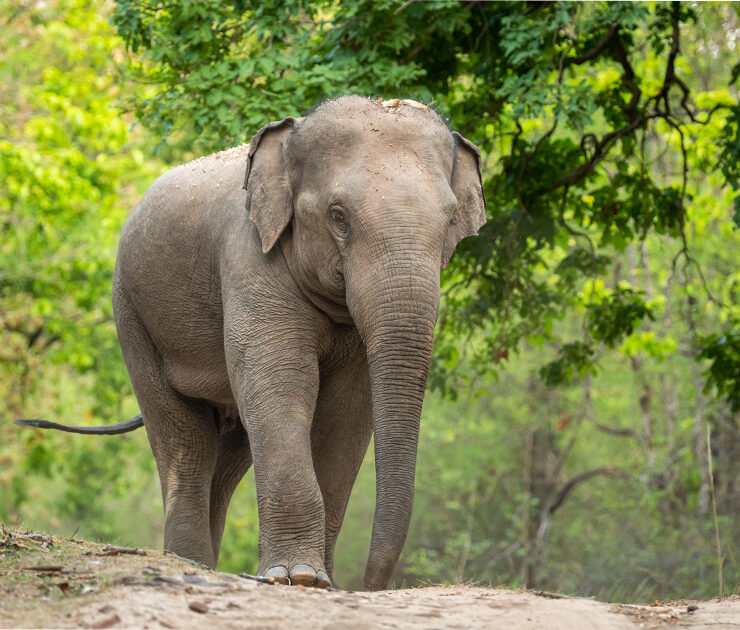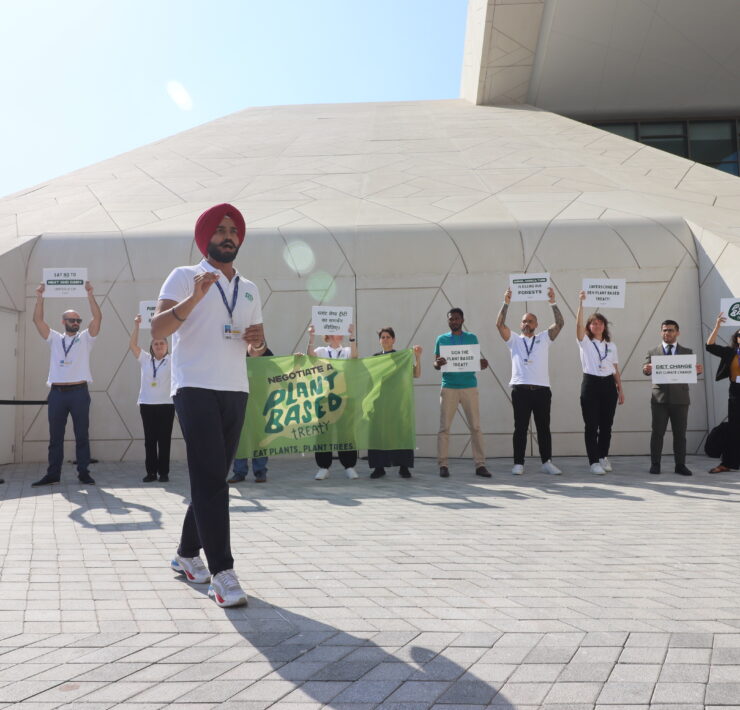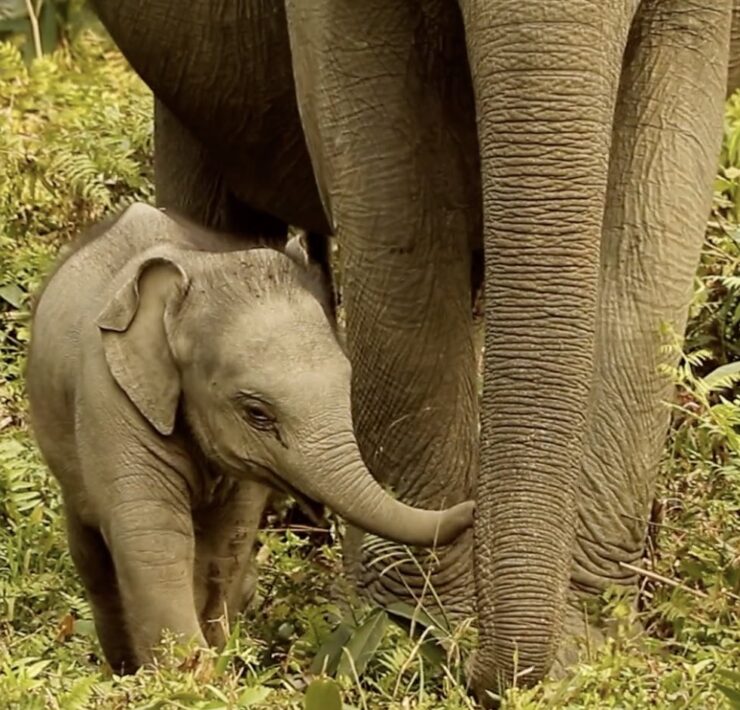One Woman’s Journey to Restoring India Back to The Land of Ahimsa

This film’s message? If India wants to be known as the Land of Ahimsa, it must return to its roots of non-violence towards all beings
Arcadia, California, September 21st, 2023 – The Land of Ahimsa is a fascinating and deeply informative feature length film narrated by Dolly Vyas-Ahuja. She is the granddaughter of Chhaganlal Joshi, a famed freedom fighter who worked alongside Mahatma Gandhi to extricate India from colonial rule. Now, Vyas-Ahuja has become an animal freedom fighter, part of India’s animal liberation movement, out to challenge industries that are destroying the land and killing sentient beings. Her journey is what makes this film so compelling. You can watch it, in its entirety and for free, as part of UnchainedTV’s streaming service, by clicking below.
What is Ahimsa and How Does it Relate to India?
Ahimsa is a Sanskrit word that means non-violence or not causing harm. This philosophy is a key virtue in Indian religions like Buddhism, Hinduism and Jainism. It is a belief that all living beings have spiritual energy and, therefore, to harm another being is to harm oneself since we are all connected. Many Hindus are vegetarians because, in Hinduism, killing an animal is considered a violation of ahimsa and causes bad karma as part of “the sum of a person’s actions in this and previous states of existence, viewed as deciding their fate in future existences” according to dictionary.com. The principal of ahimsa was also used by Gandhi during the British occupation of India to help that nation achieve freedom from colonialist rule.
Western Influence on Modern Day Indian Diet

Today, many animal advocates and spiritual leaders agree that India is NOT the land of ahimsa. The influence of the Western diet on India has created an increase in health issues such as diabetes, heart disease, and obesity. Increased fast food production has become a significant contributor to increased meat consumption, which has negative health effects. In the film, UnchainedTV founder Jane Velez-Mitchell encourages the Indian people not to fall for the consumption of fast food. “Don’t walk into these traps, that’s what I call these fast food joints. They might as well be drug pushers. They hook you on this unhealthy food that is packed with sugar, salt and fat which are known to be addictive, so you eat it and then you want to eat it again.”
Milk is Poison, Not Nectar

The film makes the case that India’s massive dairy consumption is at the root of the country hypocritical stance on ahimsa. Cows are considered sacred in India. Yet, there is widespread, extreme cruelty to cows for the production of milk. The cultural practice of pouring gallons of milk over statues is extremely wasteful and comes at the expense of the violent exploitation of cows. Vyas-Ahuja suggests, for these rituals, coconut milk, other plant milks or water be used in place of dairy milk. The film explains that cows must be pregnant to produce milk. Then, in order for humans to drink it, the babies must be ripped from the mother cows. The mothers and the babies grieve. And, the suffering continues with a variety of painful and cruel farming practices. Darshana Muzumdar, an animal advocate said, “We’re denying the birthright of a baby to its mother’s milk, that’s what we’re doing.” Muzumdar and other advocates in the film believe the dairy industry is the exploitation of the female reproductive system. The females are artificially inseminated against their will.

Environmental Effects of Animal Agriculture
India is one of the largest economies in the world and has one of the largest populations, coming in at 1.4 billion humans and growing fast. Therefore, India’s agricultural policies impact the whole world. Animal agriculture is a leading producer of methane, which is a greenhouse gas. In the film, Keegan Kuhn, co-director of Cowspiracy and What the Health, notes, “India has suffered some of the worst deforestation in the world, with over 95% of its forest cleared for agriculture, livestock, and crops fed to livestock. If everyone went vegan in India, there’d be a surplus in food.” The Journal of Ecological Society presented a Global Sensitivity Analysis, authored by systems analyst Dr. Sailesh Rao, which persuasively argues that animal agriculture is responsible for 87% of greenhouse gas emissions globally. While the exact percentage of animal agriculture’s impact is hotly debated, there is widespread agreement in the scientific community that animal agriculture is a major cause of greenhouse gases.
India’s Return to Ahimsa
“If we show Ahimsa towards animals, towards our fellow human beings, towards our environment, we can make this world a beautiful place to live in,” said Dr. Zee Shaan Ali, a PhD Program Specialist with Physicians Committee for Responsible Medicine. This life-changing film makes a strong case that India can renew the true practice of ahimsa by transitioning away from animal agriculture and, in the process, tackling climate change, human hunger, human disease and animal suffering. Sounds like a win, win, win, win. Watch the movie and see if you agree.
What's Your Reaction?
Jackie O’Neill is a graduate of the Walter Cronkite School of Journalism and Mass Communication and has volunteered in various nonprofits working for the welfare of animals.









